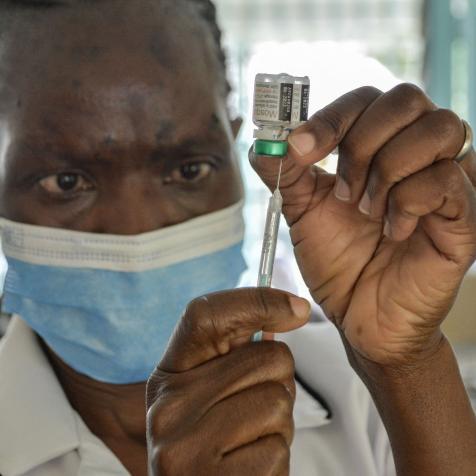
Wikimedia Commons
Alexander Fleming's Accidental Discovery Of Penicillin
By:
Ashley Hamer
His poor cleaning habit leads to an amazing moment.
August 01, 2019
Alexander Fleming, a professor of Bacteriology at St. Mary's Hospital in London, didn't do a great job of cleaning his laboratory before heading out on vacation in 1928. When Fleming came back, he began cleaning the petri dishes on which he was experimenting with bacteria. On one dish, however, he found a mold growth. In the area around the mold growth, there was no bacteria. There was bacteria in other parts of the petri dish, but the mold was sitting in an area alone. Fleming had a "eureka!" moment, as he had just accidentally discovered an antibiotic. Learn more about his world-changing discovery with the videos below.
This article first appeared on Curiosity.com.
Next Up
We Have Liftoff: Congratulations to NASA and SpaceX
Here's to NASA, SpaceX, Astronauts Bob Behnken and Doug Hurley, and all of the engineers, scientists, and staff involved with the Saturday, May 30th historical launch.
Quiz: Test Your Space Exploration Knowledge
Ahead of the historic May 27th NASA and SpaceX crewed space launch, test your space exploration knowledge!
World's First Malaria Vaccine Offers Hope to Millions
Tens of thousands of lives could be saved each year from sickness and death caused by malaria following the World Health Organization (WHO) approval of a first-ever vaccine. Scientists have recommended the RTS,S vaccine for children in sub-Saharan Africa and other high-risk areas to prevent one of the world’s oldest and deadliest infectious diseases.
4 Reasons Why Earth is the Best Planet to Call Home
Since 1970, folks from around the world have gathered together to celebrate Earth Day, an appreciation for all the good stuff we’ve got here on the Earth – and a reminder to try not to mess it up. But what’s so special about the Earth, anyway?
Last Call for the King of Planets
This month Jupiter is entering conjunction which means it's the last chance this year to catch a glimpse of the largest planet in our solar system.
Get Celestial with Lowell Observatory LIVE!
Our friends at Lowell Observatory are serving up our solar system on a platter live!
Celebrating Hubble's 30 Year Legacy
Three cheers for the Hubble! First launched in 1990 aboard the Space Shuttle Discovery, the storied space telescope is celebrating is thirtieth year in lonely orbit around the Earth.
Welcome to the Surface of Mars
Through the use of cutting-edge instruments, scientists finally have the opportunity to probe deep beneath the surface and ascertain exactly how the terrestrial planet formed.
Why Does Pluto Have Such a Weird Orbit?
Pluto is the black sheep of the planets in our solar system and it looks like astronomers aren’t sure how long Pluto will remain in its present orbit.
What are the Chances of Life Appearing On…Earth?
Just how lucky are we on Earth? What were the chances that life would arise, let alone lead to intelligence?


















